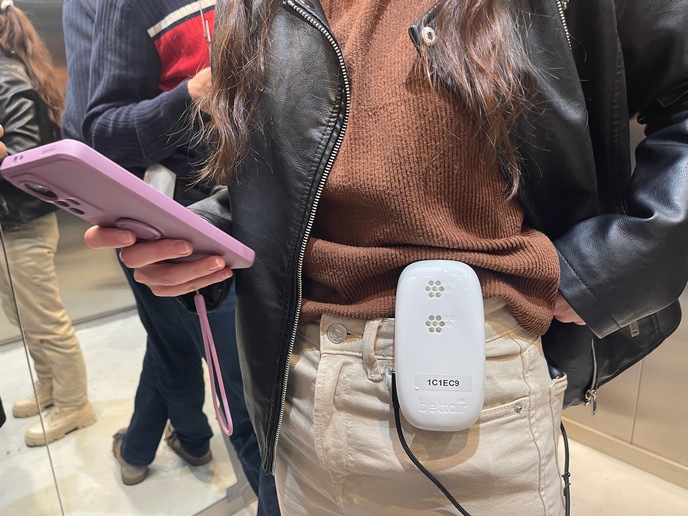Tapping into the hive mind to address air pollution
In Europe, 75 % of the population lives in urban communities, where air pollution poses a growing health concern. Protecting air quality requires a combination of innovative technical solutions and a change in human behaviour. The EU-funded SOCIO-BEE project leverages citizen scientists to combat air pollution in three cities.
The bee, the hive and the honey
SOCIO-BEE is not a project about bees. The consortium adopted the beehive metaphor to present its citizen engagement strategy. The three pilot sites - Ancona, Maroussi and Zaragoza - are the hives. The queens, drones and worker bees are all citizen scientist actors, and the data gathered by citizen scientists is the honey. Stakeholders, such as policy makers and action groups, are the honey bears. This playful concept is more than just an organisational metaphor. The model of bees gives citizen scientists a fun, friendly and welcoming structure for understanding the project’s activities.
Demographics and hypotheses
All pilots address air quality, but the specifics of each are different. In Maroussi, the project targets commuters. Volunteers collect data to test the hypothesis that air quality varies throughout the day in relation to traffic patterns. Not only do participants gather relevant scientific data, but the activity makes commuters aware of the impact they have on the environment. In Ancona, where 26 % of the population is over 65 years old, the goal is to engage senior citizens in the project. The pilot seeks to map air quality in various areas while simultaneously encouraging older residents to adopt a more active lifestyle. The Zaragoza pilot (from which the photo accompanying this article was taken) focuses on enrolling students as citizen scientists. Working with three institutions, the project explores how emission levels impact air quality.
A wearable sensor node
Data collection is a key feature of the project. According to project coordinator Anastasios Drosou: “SOCIO-BEE collects measurements of air pollutants in the pilot cities. These include NOx and COx gases, PM2.5 and PM10 particles, humidity and temperature.” Collection is managed using a wearable sensor node developed by project partner Bettair. The sensor node communicates air pollution data to the user’s smartphone. The smartphone forwards data to the SOCIO-BEE platform. Drosou says: “The smartphone runs the entire suite of SOCIO-BEE components. It allows the user to search for and select campaigns, to review measurements and to access the visual analytics.” Drones are also essential to the project’s work. Volunteers can fly their drones over areas that are hard to reach, and the drones are able to measure air quality at higher levels. SOCIO-BEE also developed a novel clip to attach the sensor node to any type of drone.
Pilot iterations
SOCIO-BEE was designed to run in two iterations. The first allowed the project to fine-tune various onboarding materials. The first round of pilots involved 115 people - 41 in Ancona, 39 in Maroussi and 35 in Zaragoza. The second round of pilots has targeted a total of 2 400 participants by the end of the project. Early participants have offered positive feedback. Chrisanthe Theodorakopoulou of Maroussi has this to share about SOCIO-BEE: “The project was a unique experience in my region with interesting indicators. I look forward to information about the data processing and the results of the measurements we acquired." By bringing together experts in technology and human behaviour, SOCIO-BEE has tapped into the hive mind of the citizen scientist movement. The project’s efforts improve our chances of successfully addressing air pollution in urban communities.
Keywords
SOCIO-BEE, air pollution, citizen science, wearable sensor node, Bettair, Citizen Science Toolkit, Citizen Science sustainability



